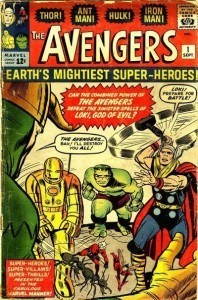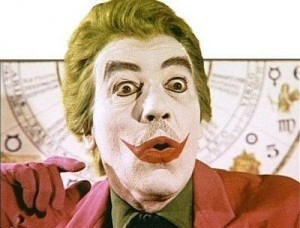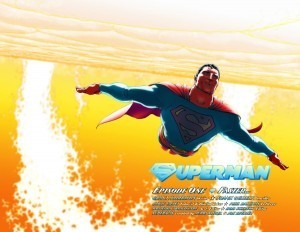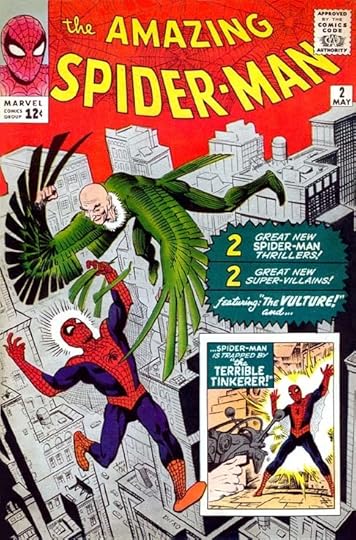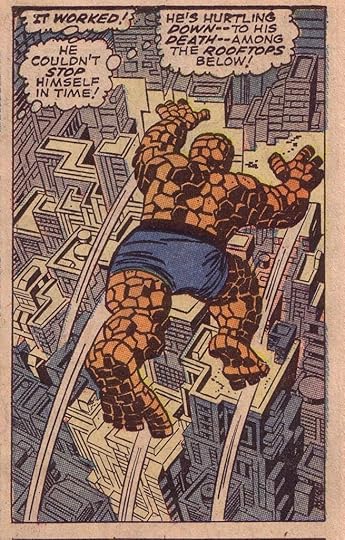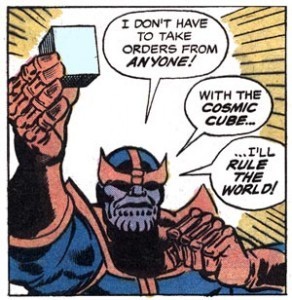The Avengers
I imagine Joss Whedon is going to have a hard time picking up his comics at the local shop because of all the unsolicited hugs he’ll receive from the geek community. He pulled it off. He made a full-blown, unapologetic superhero movie. And he had the top opening weekend of any film, ever.
That means he’ll probably just send one of his Fembot Bodyguards to collect his comics while he stays home and counts his garbage bags full of money (and woe unto you if you try an unsolicited hug on one of those, fanboys). But still. He’s earned it.
There are many, many geeks out there giving their thoughts on the movie. I figured I’d join in. If you’re one of the last dozen people in the world who has not seen it, well, go to the multiplex. Everyone else, spoilers ahead.
First things first: I understand the objections, aesthetic and moral, to throwing more money at Marvel and Disney. I don’t agree with them, obviously, but that’s a debate for another post.
And I’m not going to engage in one of my favorite sports, complaining about the stuff they got wrong.* That is a luxury for younger fans, who didn’t grow up with this version of Captain America:
As far as I’m concerned, this is about as faithful an adaptation as we’re going to get of a story that includes a Norse God, a man wearing robot armor, and an unfrozen super-soldier who punched Hitler in the face, who all get together to fight crime. And I’m okay with that.
This is just going to be about what I liked.
And there was a lot of it. There was an amazing amount of material to cram into the movie, and as a friend of mine said, it’s impressive first of all as a feat of engineering. Just dividing up the lines and character moments around probably required a spreadsheet and a protractor. But none of it feels mechanical. It’s a testament to the director and the strengths of the actors that they’re able to nail what’s essential about each character in a very short amount of time.
Whedon’s one-liners — always funny and great — also reveal something each time they’re used. Cap, a man out of time: “It appears to run on some sort of electricity.” Thor, trying hard to tamp down his native arrogance: “He’s adopted.” Iron Man, the smartest guy in any room: “Actually, I’m planning to threaten you.”
The Hulk became a strong presence in the movie, despite relatively little screen time and maybe two lines. I think it was a very smart move to have him stay as Banner most of the time. Having the Hulk is like John Belushi in Animal House: you only unleash him when you want to wreck the joint, and too much of him would burn out the audience.
But the real breakout star was Black Widow. Because she was often relegated to the interstitial moments — the bits of plot bridging the big set pieces — Scarlett Johansson got a lot of key scenes. (She brought in the Hulk; outwitted Loki; fought aliens on the ground; shut down the Tesseract. You could argue she’s the biggest hero in the whole thing.) It’s the first time I’ve ever really cared about a character that’s more or less a cipher in the actual comics, and I think that’s another testament to the choices of the actor and the directors.
Best of all, however, was the fact that this was nothing but a super-hero story. There was humor and action and drama, but zero camp. Nobody was winking at the audience, or playing it for half-measures, as if to say, “I am above this source material.” The best way I can describe it is Cesar Romero’s mustache. In the 1966 Batman TV series, Romero played the Joker but refused to shave his signature mustache. Because, after all, it’s just a send-up of a crappy kid’s comic, right? Who really cares?
Nobody in The Avengers treated their job like that. They took it as seriously as the material allows, and I think the response — $744 million opening weekend worldwide — shows that you get an equally serious return on investment.
From a storytelling perspective, it got exactly right what was great and revolutionary about Marvel Comics when they first appeared on the stands in the 60s. The books presented a world where heroes’ victories were not certain, where they came at a cost, and not everything was wrapped up neatly by the final panel. Moving their heroes slightly (and only slightly) into the real world enabled Lee and Kirby and Ditko to reintroduce the elements of actual drama into the stories.
The movie captured that sense perfectly. Even though we all go into a comic book or a superhero movie knowing the good guys are going to win, it’s that uncertainty that makes it interesting. We need to know how the good guys will overcome their obstacles, and we need to see them bleed a little on the way. Otherwise, we don’t have the cathartic release at the end, because the victory that’s never in doubt doesn’t really cost anything.
This is why Marvel has always been able to make its heroes more accessible than DC’s. DC’s heroes fly above us, and only touch the earth when they need to solve problems. (Even Batman, their pantheon’s “realistic” hero is a billionaire genius martial arts expert detective inventor. Who swoops down from above to stomp on crime.) They are not just heroes, they are gods, and they look somewhat ridiculous when we try to whittle them down to our size.
Marvel heroes are ground-level heroes. They have been earthbound from the start. Even the perspectives in the art have been different. Marvel’s artists have always emphasized the use of forced perspective (a big part of the Kirby style) when illustrating its heroes as they travel above the rooftops. There is always a reminder, in the form of a building or an onlooker or a bridge that the world is still there. Whereas DC’s heroes often glide effortlessly against the empty blue or black of the air.
Superman flies like he’s going for a stroll. He’s born to the sky. When Spider-Man or Daredevil or even Iron Man soar above the skyline of New York, it’s a triumph over gravity. There’s always a sense of height, of ascension, with the concomitant truth just beneath every panel: the world is always waiting to tug them back down. Marvel’s heroes have to fight for every inch, and they are well aware of all that nothing between them and the ground.
Take a look at how the Avengers fight, even in their cosmic wars. It’s man-to-man, street-level combat. The Avengers won the Kree-Skull War by going behind enemy lines; they took out the two biggest and most powerful empires in the galaxy with a handful of people. The Fantastic Four travel through interstellar space and parallel dimensions, but they do it like a family on a long roadtrip, with lots of bickering.
(Digression here: this is one reason Marvel has always failed to cram a Superman-like figure into its own mythology. Yes, I’m looking at you, Sentry. But it also sometimes applies to Thor, Hyperion, and even Captain Marvel after he was revamped by Starlin. That kind of power in tights and cape is just too big. It throws off the usual balance, and violates many of the unwritten rules of the Marvel Universe. Ultron, the Mole Man, and Fin Fang Foom are all less threatening if someone can just throw them into the sun.)
The movie, for me, was summed up beautifully by that final end credits scene of the Avengers in a falafel shop. They were exhausted, hungry, and empty-eyed. They’d won. But they were tired. And after all that fighting, they just wanted to sit down together and get something to eat.
I left the theater grinning ear-to-ear.
Oh, and one more thing: Thanos.
He was the villain in my favorite Avengers story ever, so yeah, I’m pretty psyched for the sequel.
*Well, mostly. I am never a huge fan of any plot that hinges on mind control. And comics have a long and rich history of beating that particular horse to death. But in context, I think it gave Hawkeye a smart role to play as an antagonist that was true to the character in both the comics and as he’s portrayed in the movies – and made it clear just how dangerous even the least powerful of the Avengers could be on the wrong side.

